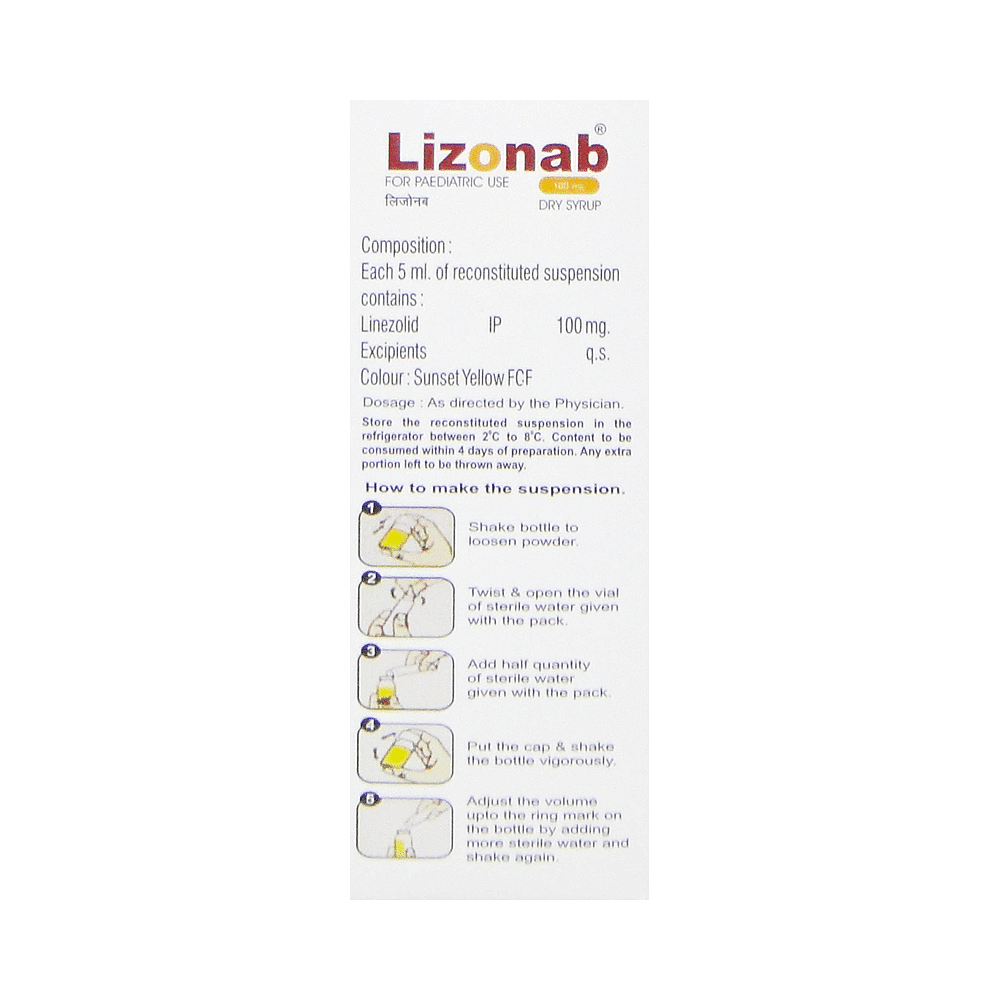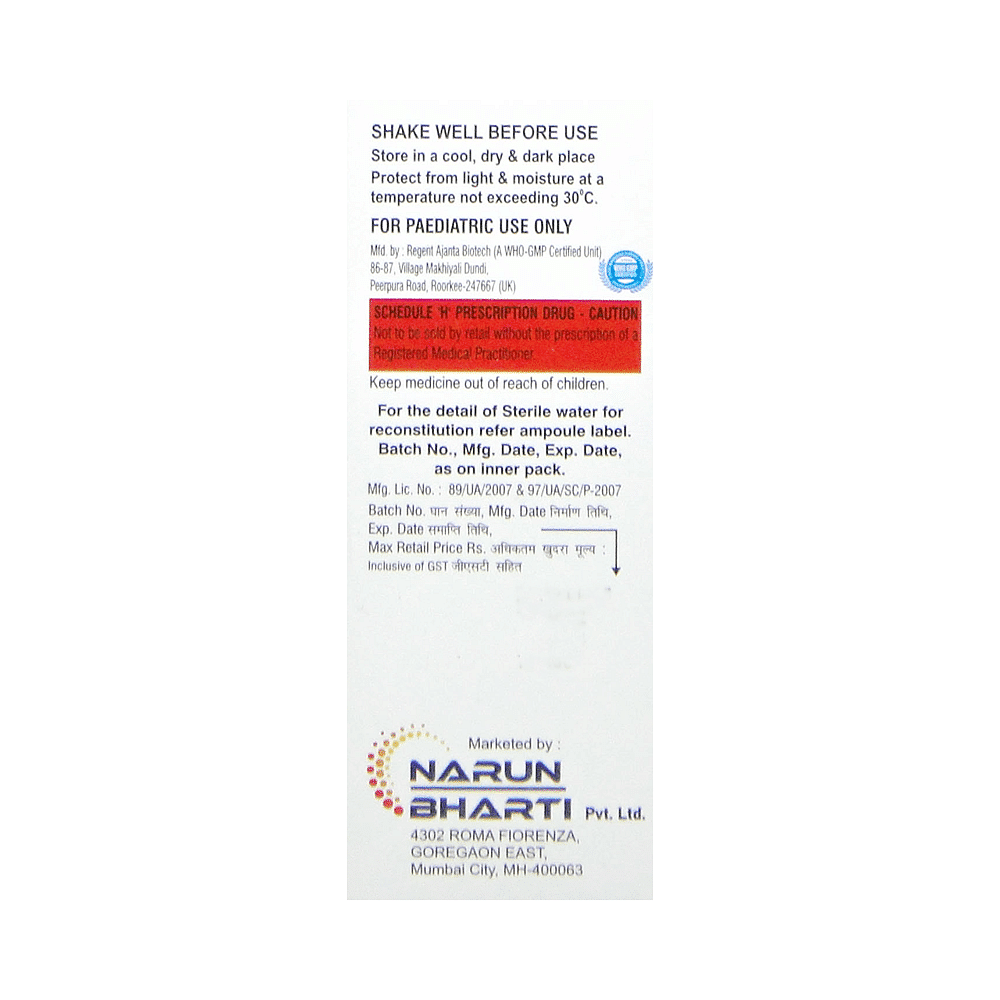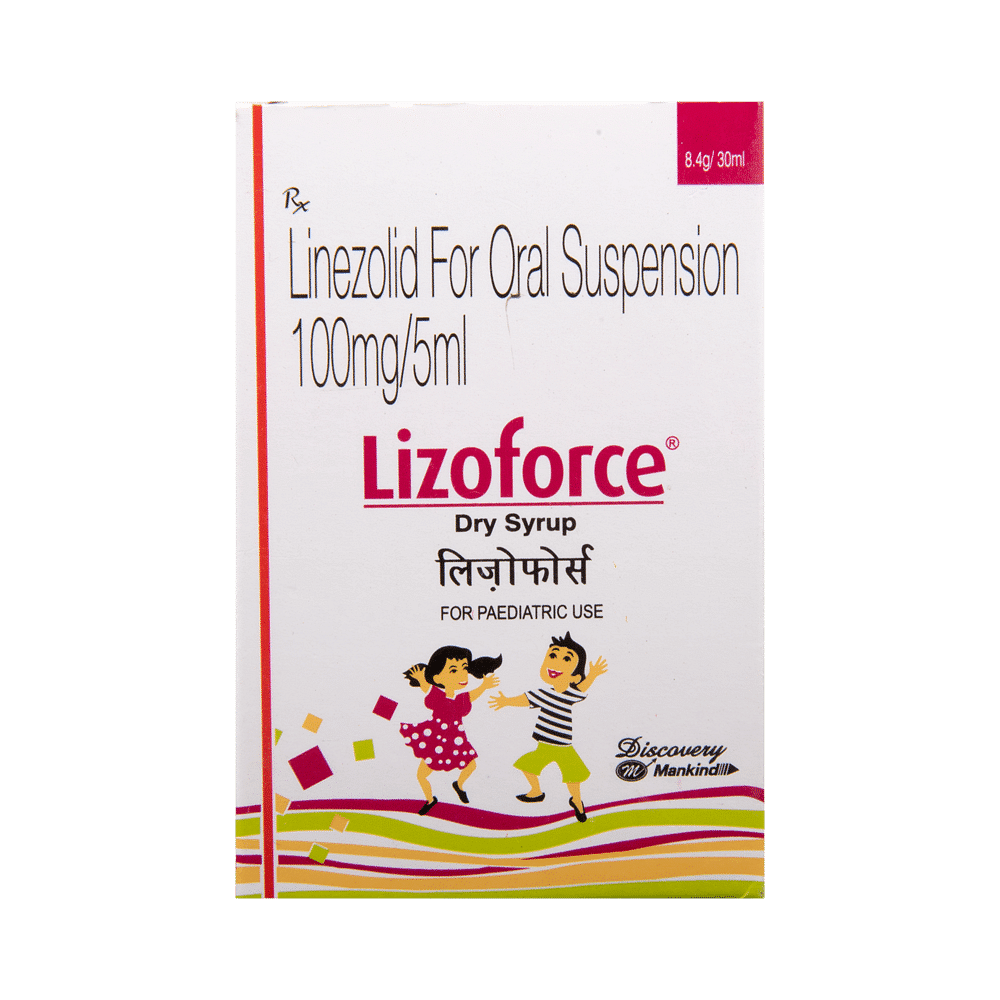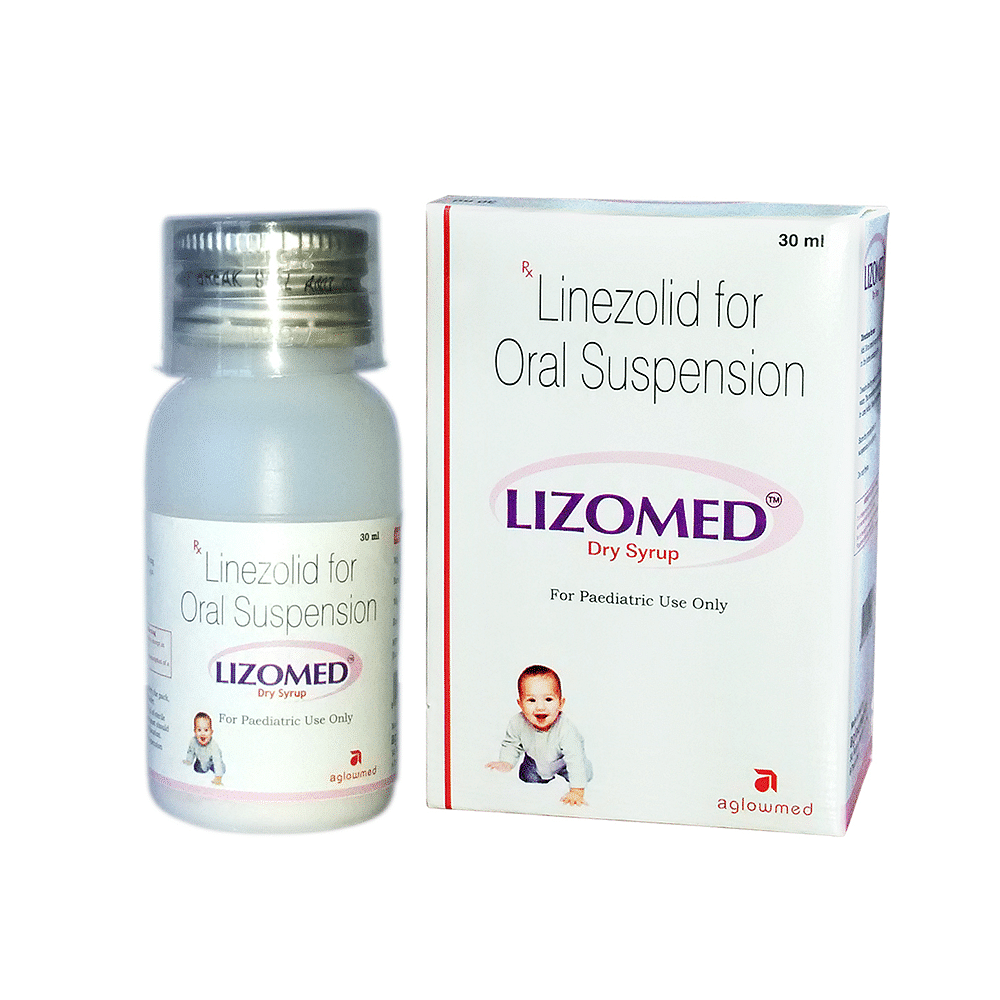


Lizonab Dry Syrup
Manufacturer
Narun Bharti Pvt Ltd
Salt Composition
Linezolid (100mg/5ml)
Key Information
Short Description
Lizonab Dry Syrup is an antibiotic medicine that helps cure a wide range of serious infections caused by resistant bacteria.
Dosage Form
Oral Suspension
Introduction
Give Lizonab Dry Syrup to your child orally, preferably at a fixed time, either before or after meals. Adhere to the dose, time, and way prescribed by the doctor as that depends on the type and severity of the infection, your child's age, and body weight.
Directions for Use
Take this medicine in the dose and duration as advised by your doctor. Check the label for directions before use. Measure it with a measuring cup and take it by mouth. Shake well before use. Lizonab Dry Syrup may be taken with or without food but it is better to take it at a fixed time.
How it works
Lizonab Dry Syrup is an antibiotic. It stops bacterial growth by preventing the synthesis of essential proteins required by bacteria to carry out vital functions.
Quick Tips
Your child must complete the entire course of antibiotics. Stopping too soon may cause the bacteria to multiply again become resistant or cause another infection. Your child must drink plenty of water if he/she develops diarrhea as a side effect. Discontinue Lizonab Dry Syrup and inform the doctor immediately if your child develops a rash, itchy skin, swelling of face and mouth, or difficulty in breathing. Only give Lizonab Dry Syrup to your child for their current infection. Never save medicine for future illnesses.
Related Medicines

Lizomac DS Dry Syrup

Maxolid DS Dry Syrup

Lizoforce Dry Syrup

Vizolid Oral Suspension

Megazolid 100 Dry Syrup

Linofit DS 100mg

Lexilid Oral Suspension

Lizomed Oral Suspension

Henzolid 100 Dry Syrup

Lizowish Dry Syrup
Frequently asked questions
What if I accidentally give my child an excess of Lizonab Dry Syrup?
Overdose may cause unwanted side effects such as low blood count, nerve damage, or loss of vision. It may even cause a life-threatening complication called lactic acidosis, which shows symptoms of abdominal pain, nausea, vomiting, and generalized weakness. Rush to your child's doctor immediately if you notice any of these symptoms.
Is it safe to give Lizonab Dry Syrup to my child who is already taking antidepressant therapy?
No, it is not safe as it can lead to a life-threatening syndrome known as serotonin syndrome, which can be manifested as hypertension, increased heart rate, shaking of the body, seizures, and increased body temperature. Call your child's doctor right away if these symptoms appear.
What should I do if my child shows no improvement even after taking Lizonab Dry Syrup for the prescribed duration?
Ineffective treatment with Lizonab Dry Syrup could mean that the medicine is not able to act against the infection-causing bacteria. In such a case, visit your child's doctor, who may change the medicine and prescribe an antibiotic that has a stronger impact on the infection-causing bacteria. Since some of these antibiotics are given as intravenous injections, you may have to visit the doctor to give this medicine to your child.
Can Lizonab Dry Syrup be given for a long duration?
Prolonged use of Lizonab Dry Syrup may result in fungal or bacterial superinfection, including serious gastrointestinal infections due to inhibition of good bacteria of the gut. You must reach out to the doctor soon.
Can other medicines be given at the same time as Lizonab Dry Syrup?
Lizonab Dry Syrup can sometimes interact with other medicines or substances. Tell your doctor about any other medicines your child is taking before starting Lizonab Dry Syrup. Also, check with your child's doctor before giving any medicine to your child.
What lab tests are required for monitoring while my child is taking Lizonab Dry Syrup?
For children receiving Lizonab Dry Syrup for a longer duration, the doctor may ask for complete blood count, basic metabolic panel, liver function test, and routine eye and nerve function assessments.
In which disease conditions should I avoid giving Lizonab Dry Syrup to my child?
Avoid giving Lizonab Dry Syrup if your child is suffering from conditions like diabetes mellitus (risk of low glucose), hypertension, hyperthyroidism, and seizure disorder. To ensure that this medicine is not given in such conditions, tell your child's complete medical history to the doctor before giving Lizonab Dry Syrup to your child.
What food items should my child avoid while taking Lizonab Dry Syrup?
Avoid giving tyramine-containing foods like old cheese, red meat, fava or broad bean pods, soy sauce, and other soybean condiments while your child is taking Lizonab Dry Syrup. Always recheck the freshness of food before giving it to your child as it is an important concern.
Can I get my child vaccinated while on treatment with Lizonab Dry Syrup?
It is advised not to get your child vaccinated while they are on treatment with Lizonab Dry Syrup. Let your child recover from the ongoing illness and finish the course of the medicine. As soon as a child is feeling better, even if he or she is on antibiotics, the vaccine can and should be given.


